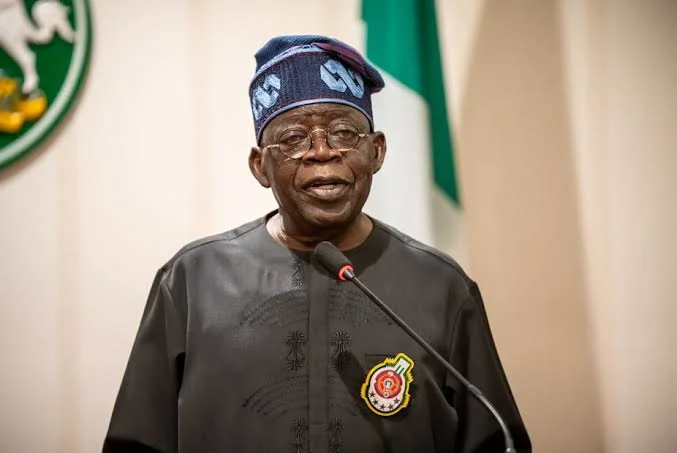President Bola Tinubu has instructed Nigeria’s financial and capital market regulators to intensify surveillance of the growing use of digital currencies and stablecoins, warning that their rapid adoption could undermine traditional banking systems if left unchecked.
Delivering his message at the 18th Annual Banking and Finance Conference of the Chartered Institute of Bankers of Nigeria (CIBN) in Abuja on Tuesday, the President—represented by Finance Minister and Coordinating Minister of the Economy, Wale Edun—highlighted how the global financial landscape is being reshaped by technology.
“We are witnessing a digital revolution. Increasingly, citizens no longer depend on banks for payments; instead, they are turning to stablecoins and digital currencies,” Tinubu noted. “This is why I have directed regulators in banking and capital markets to closely monitor and manage this transition while it is still in its formative stage.”
Nigeria has already moved to tighten its regulatory framework for digital assets. Following the passage of the Investment and Securities Act 2025, the Securities and Exchange Commission (SEC) now recognizes digital assets as securities, granting it the power to license and supervise Virtual Asset Service Providers, including exchanges and custodians. The Act also enforces strict Know Your Customer (KYC) and Anti-Money Laundering (AML) compliance measures.
Digital Innovation and Economic Growth
Tinubu underscored that while Nigeria’s Gross Domestic Product is growing, the contribution from manufacturing and industrial activities remains insufficient to address the nation’s rising unemployment. He argued that leveraging digital tools, artificial intelligence (AI), and open banking would be essential in boosting productivity, expanding industries, and creating quality jobs.
“Yes, GDP is growing, but the manufacturing sector is not yet driving enough job creation,” he stressed. “We must embrace innovation—digital technology, AI, and open banking—to enhance efficiency and industrial output.”
He further emphasized the government’s commitment to preparing Nigeria’s youthful population for the future of work. With projections showing that Nigeria will host the world’s largest workforce by 2050, Tinubu highlighted ongoing investments in education, infrastructure, and digital literacy as critical for unlocking opportunities.
Reforms and Revenue Mobilisation
The President also pointed to recent tax reform laws as part of his administration’s broader fiscal strategy to strengthen transparency and improve government earnings. By linking public sector accounts directly to the Central Bank of Nigeria (CBN), Tinubu explained, the government now has “full visibility” of its finances, a move expected to significantly improve revenue mobilisation.
“Financial inclusion must mean more than access to services—it must translate into jobs, especially for young Nigerians,” he added. “Households need reliable access to affordable credit, because true inclusion creates meaningful and attractive employment opportunities.”
Diaspora Remittances and Private Investment
CBN Governor Olayemi Cardoso, speaking at the same event, revealed that the apex bank is targeting at least $1 billion per month in diaspora remittances by 2026. He described remittances as one of Nigeria’s most dependable sources of foreign exchange, adding that new outreach initiatives with commercial banks such as Access Bank and Zenith Bank have already boosted inflows.
“When we started, inflows were around $250 million monthly. We doubled that to $500 million, and today, we are seeing $600 million,” Cardoso said. “Harnessing even a fraction of diaspora earnings could transform our economy.”
Banking Sector Growth and Non-Oil Exports
In his contribution, CIBN President and Council Chairman, Prof. Pius Olanrewaju, praised the banking sector’s resilience and highlighted that Nigerian banks have raised over N2.5 trillion in capital since 2024. He also pointed out that domestic credit to the private sector has surged beyond N82 trillion this year, fueling business expansion and job creation.
Olanrewaju further reported steady growth in non-oil exports, which expanded to 236 products in the first half of 2025, generating $3.23 billion—a 19.6 percent increase compared to the same period in 2024. He also applauded the government’s tax consolidation reforms, which will merge over 100 revenue agencies into the new Nigeria Revenue Service by January 2026.
Path to Inclusive Transformation
The Abuja conference drew participants from banking, technology, and finance sectors, all echoing the call for Nigeria to embrace innovation-driven policies, foster private investment, and strengthen digital capacity in order to drive inclusive growth.
Tinubu concluded by reaffirming his administration’s determination to stabilise the economy, create jobs, reduce poverty, and attract private-sector-led growth. “Those who innovate, reform, and collaborate will prosper,” he declared. “This is the future Nigeria is determined to build.”


